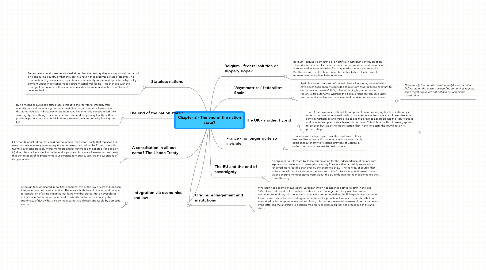Chapter 2 - The end of the nation state?
by Marloes B


1. Stateless nations
1.1. Some states contain people who feel either that the territory they occupy should be part of a neighbouring country or that they are in a nation that deserves a state of its own. This combination of grievance and aspiration was previously suppressed by dictatorship or lay dormant under wider concerns to secure material well-being. This changed with the coming of democracy, with socio-economic development and with a trend toward decentralization.
2. Origins, enlargement and institutions
2.1. What part has become known as the European Union has expanded since its birth in the late 1950s to include most of the continent's states. Since, in large part, they wish to combine continued sovereignty with collective action and a common market, the EU experiences a more or less creative tension between intergovernmental and supranational impulses - impulses that are embodied by its component institutions. So far, this has not prevented increased integration, even if the latter (ad the alteration in decision-making rules it has required) has proceeded in fits and starts.
3. Integration via economics and law
3.1. Although they originated in political decisions, two of the key drivers of European integration are not overtly political. The euro is both the culmination and the spur to completion of a single market that locks member states into 'an ever closer union' - one that is underpinned and constantly reinforced not only by the supremacy of EU law but also by the fact that it is directly applicable by domestic courts.
4. A constitution in all but name? The Lisbon Treaty
4.1. Like the EU Constitution that could not be ratified, the Lisbon Treaty that replaces it is seen by some as merely a necessary tidying up exercise to allow the EU to cope with twenty-seven (and possibly more) members and by others as a major step (for good or ill) along the road to some kind of federal superstate. A balanced assessment suggests that the irritation of its proponents is understandable but so, too, are the suspicions of its opponents.
5. The end of the nation state?
5.1. By no means all European states face a threat to their territorial integrity from minority nationalism, although where it exists that threat is serious. However, al the states involved in European integration have incrementally compromised their sovereignty, even though they continue to command the primary loyalty of their (majority) populations and could, in theory, reassert their authority by leaving the EU.
6. Belgium - federal solution or slippery slope?
6.1. Belgium - arguably something of an artificial nineteenth-centruy creation - has adopted a federal structure in order to accomodate the demands for autonomy of its most assertive, Dutch-spreaking linguistic community. But this seems to not to have halted but rather to have fuelled calls for more (or even complete) independence.
7. 'Asymmetrical' federalism - Spain
7.1. Spain is a state composed of several historic kingdoms, some of which have never been entirely reconciled to rule from Madrid. Since its return to democracy in the mid-1970s, it has accordingly granted some of its regions extra autonomy. Whether this flexible response can save Spain from separatist violence or even eventual break-up remains to be seen.
7.1.1. Theoretically (that is not constitutionally) Spain is not a federal state - the powers enjoyed by some of its regions, some might argue, are not defined as such by the constitution.
8. The UK - another hybrid
8.1. The UK has, like Spain, offered its component countries varying levels of autonomy in order to contain minority nationalism. Its situation is rather more complicated because some in Nothern Ireland would like to see the province absorbed into the Irish Republic and have taken up arms to achieve this outcome. This violent conflict, however, appears to be over, but it is by no means certain that in the long term the UK will retain its present shape.
8.1.1. New node
